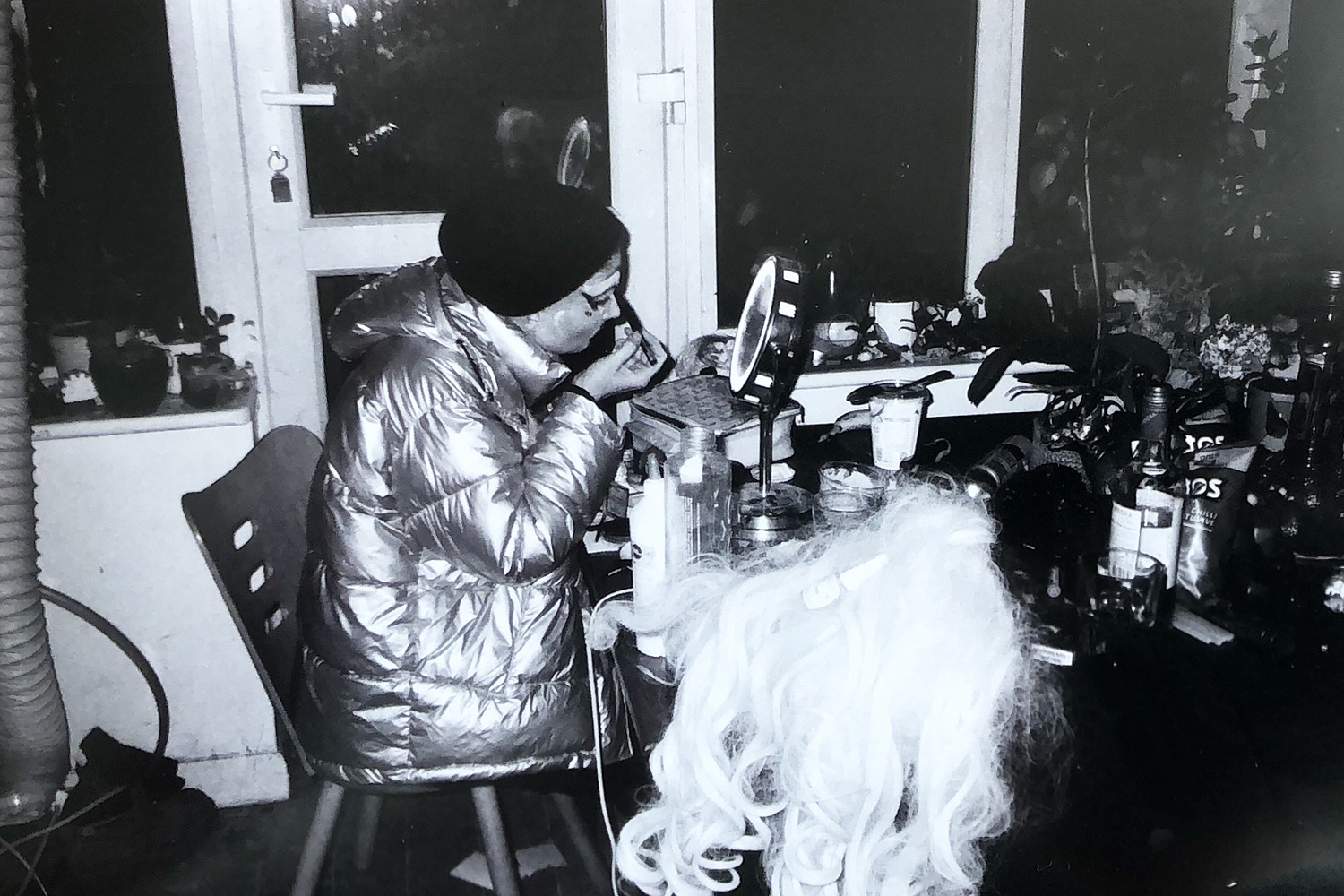share house kitchen, Saturday night
This room as a picture, the Musician stands up, his lower groin occupies the space with the possessive masculinity of a Mapplethorpe.
The backdrop is the run-down annex space, between the kitchen and the living room. Divided by a couch and antique dresser.
Beside him, there is Maxxx. Head shaved, eyes brows shaved – make-up pearlescent in the black and white photo.
They are sitting next to the Musician on the old couch. They are pulling on a cigarette. Ringed fingers cover part of the cheekbone. Reaching up, ready to exhale.
The Drag Queen finishes her makeup at the table – just outside the frame. Painted eyebrows carve shock-lines - though she is calmly dipping a brush in her half-opened, delicate mouth,
wetting the tip into a fine point, staring into a round mirror fringed by chipped metal. Shucking sweet wine through her teeth until the cold syrup runs down her neck.
Poetry and photography by Stephanie Powell
Stephanie Powell
What is the significance of this work to you?
How hungry are the children - the women in my family have an unhealthy relationship with food. They are either big-boned, curvy ladies who were fat children and grew up to be diet-obsessed, or they are thin and birdlike, with a fear of being large. I grew up being poked and prodded by both groups, feeling very much like the chubby girl in the middle. I was always a very hungry child with a sweet tooth and it was hard not to feel punished for something I felt I had very little control over.
Scene III - I lived in and out of share houses for just over ten years. You can find yourself in really good ones and in really bad ones. The really good ones are where you feel like you're living with a chosen family. There is a level of comfort and familiarity there that is unique to living in any other situation. Even though I often felt a sense of being anchorless. The idea of a chosen family is something that's also tied into queer culture, about constructing your own spaces of acceptance.
What is the significance of the form you chose for this work?
Poetry helps me sieve through memory, to find the expression I'm looking for.
What was your process for creating this work?
I generally write out my poems in a notebook first, then I type them up and make corrections, re-type them again before writing them up into a word doc—this process really helps me edit out words that I've used twice and make sure I'm using words as effectively as possible.
Stephanie Powell is a poet based in London. She grew up in Melbourne, Australia. She's had work published in the Bacopa Literary Review, The Halcyone, Not Very Quiet, New World Writing and in two anthologies published by Enthusiastic Press. When not writing poetry or hiding up in her attic, she works in documentary television. More poems can be found on her instagram: @theatticpoet
Next (My Wife and I: A Case Study) >
< Back (How Hungry are the Children?)
